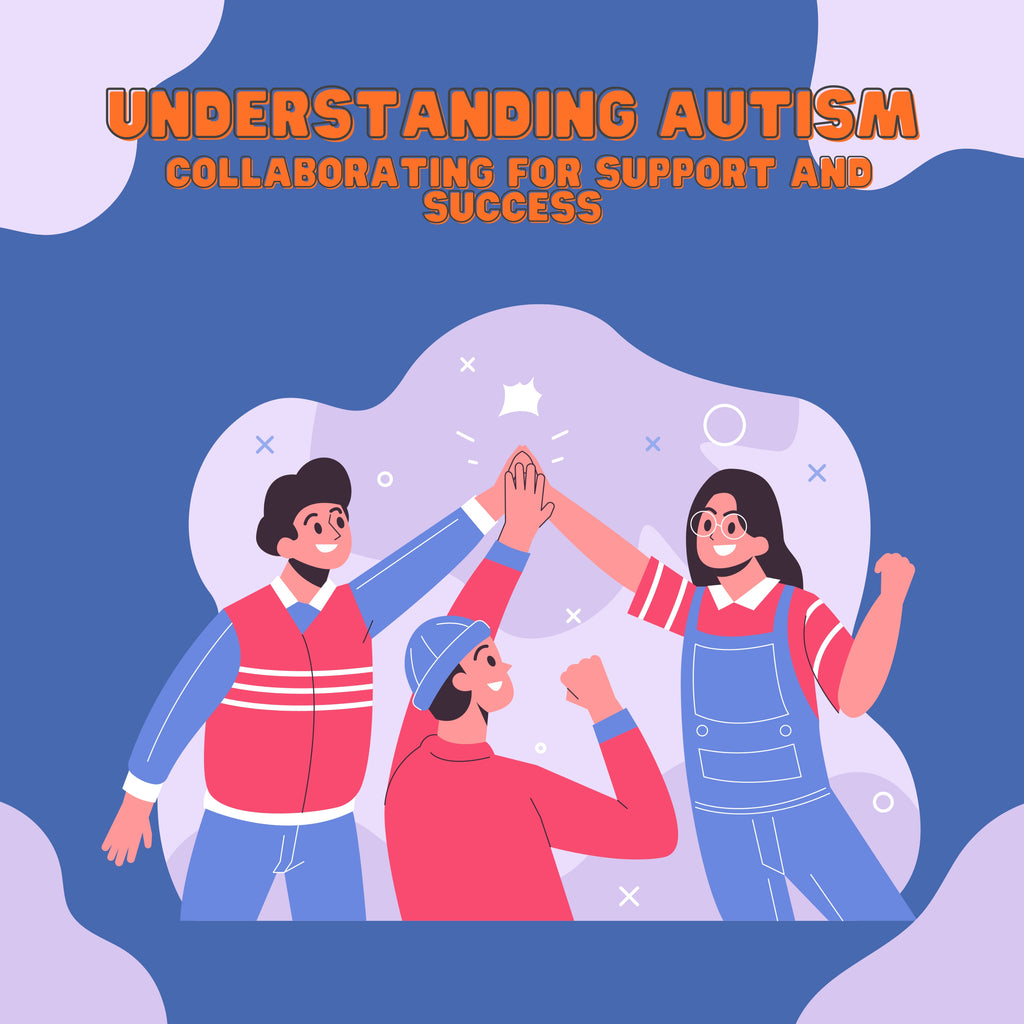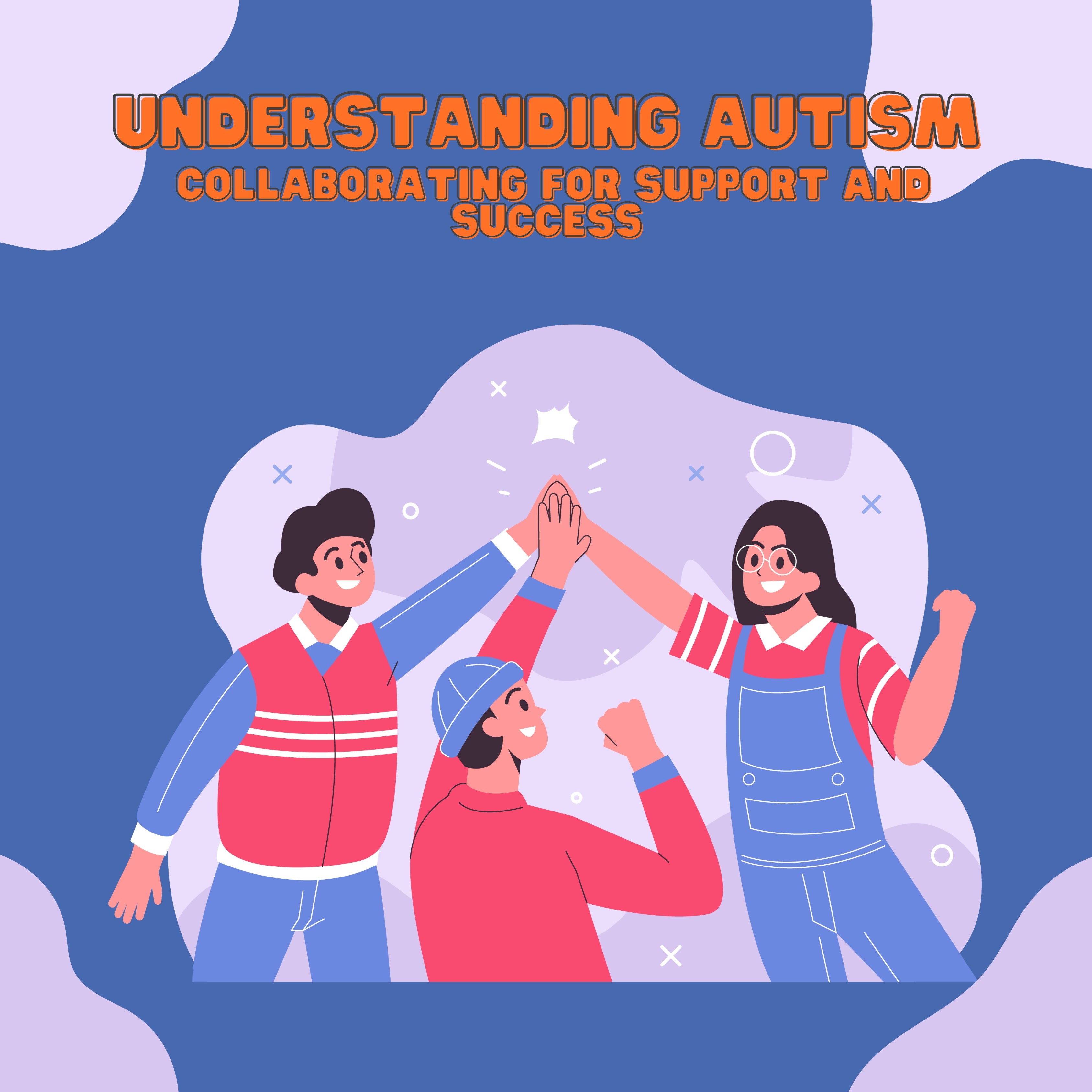
As we deepen our understanding of autism, we can create inclusive environments that nurture the growth and well-being of autistic individuals. Collaboration with professionals and support networks is helpful to provide assistance and support for autistic children and individuals.
Collaborating with Professionals: Building a Supportive Network
Working closely with professionals who specialize in autism is crucial in providing comprehensive care and support for autistic individuals. These professionals, including therapists, educators, and support groups, possess valuable insights, guidance, and resources that can enhance the development and well-being of autistic children and individuals.
Always remember that professionals are there to guide you, but your understanding and insights as someone close to a autistic individual are equally vital in shaping their support strategies.
General Practitioners (GPs): The First Step in the Journey
General Practitioners (GPs) often serve as the initial point of contact in the autism diagnosis journey. They listen to concerns, explain what autism is, and suggest pathways towards diagnosis and support. Typically, GPs refer individuals to specialists who have extensive education and training in autism, enabling them to provide detailed support.
Psychologists: Unraveling the Complexities of the Mind
Psychologists study the human mind, focusing on mental health, emotions, intelligence, motivations, and behaviors. Some psychologists are involved in assessing for autism and work directly with individuals through psychotherapy. By helping individuals navigate relationship challenges, learning difficulties, performance issues, and social obstacles, psychologists empower autistic individuals to find solutions and thrive.
Occupational Therapists: Promoting Independence and Well-being
Occupational therapists (OTs) concentrate on promoting health, well-being, and independence for individuals. They collaborate with individuals, parents, teachers, and caregivers to implement strategies that aid skill development in various environments, such as early years, school, and community settings. By focusing on self-care, productivity, and social activities, OTs empower autistic individuals to navigate daily life with confidence.
Speech Pathologists: Enhancing Communication Skills
Speech pathologists specialize in assessing, diagnosing, and supporting communication. They address challenges related to voice usage, speaking and listening skills, language comprehension, reading and writing abilities, and social behaviors stemming from communication difficulties. By equipping autistic individuals with effective communication strategies, speech pathologists foster social connection and overall well-being.
Dietitians: Nurturing Nutritional Health
Children and adults with autism may have specific dietary challenges, such as food sensitivities and might not like certain foods. Dietitians, experts in food, nutrition, and diet, provide guidance tailored to autistic individuals and related health conditions. By addressing nutritional needs and navigating dietary complexities, dietitians support individuals in maintaining a balanced and nutritious diet.
Developmental Educators: Empowering Independence
Developmental educators (DEs) specialize in providing practical support to individuals that need an environment that is tailored to their needs. Working closely with families, service providers, and other allied health professionals, DEs prioritize choice, social inclusion, and quality of life for autistic individuals. Through their expertise, DEs enable individuals to achieve their goals and thrive within their communities.
Social Workers: Supporting Everyday Lives
Social workers play a vital role in supporting families and individuals in managing daily challenges. Autism-specific social workers, often employed by government agencies or self-help groups, provide assistance to parents of autistic children. With skills in complex problem-solving, counseling, and monitoring child well-being, social workers offer vital support and guidance to families navigating the complexities of autism.
Disability Support Workers: Enhancing Independence and Community Engagement
Disability Support Workers are professionals who assist individuals with disabilities, including autism, and their families in developing independence and community participation. They provide support tailored to specific needs, such as acquired brain injuries, physical and neurological disabilities, intellectual disabilities, and autism. By empowering individuals, Disability Support Workers foster independence and facilitate meaningful community connections.
Building a Supportive Network: Involving Family and Friends
In addition to collaborating with professionals, involving family and friends in the support network is crucial for the well-being of autistic individuals and their families. By helping family and friends understand autism and its impact, we can foster an inclusive and supportive environment.
Educating Family and Friends: Sharing Knowledge and Insights
Acknowledge the feelings of family and friends as they may struggle to understand the diagnosis and its implications. Providing basic information about autism and explaining how it affects your child's behavior can help them better grasp the unique challenges and strengths of autistic individuals. Share strategies for effectively connecting and communicating with your child, allowing family and friends to form meaningful and supportive relationships.
Extended Family Gatherings: Catering to Individual Needs
Organizing extended family get-togethers and activities that suit your child's needs and abilities can create an inclusive environment for everyone. Consider the sensory sensitivities and preferences of your child, ensuring that the gathering accommodates their comfort. These gatherings provide opportunities for extended family members to connect with your child and understand their unique strengths and contributions.
Handling Reactions: Nurturing Supportive Relationships
Family and friends may respond differently to the autism diagnosis and the behavior of autistic individuals. Some may readily offer support, while others may take time to understand how they can help. It is essential to have patience and provide basic information about autism to address any uncertainty or discomfort. Focus on nurturing relationships with supportive individuals who offer the emotional support you need. As understanding deepens, unhelpful reactions often give way to a more supportive and inclusive environment.
Emphasizing Home-School Communication: Sharing Positive Information
Maintaining open lines of communication between home and school is crucial for autistic children. While some children may struggle to communicate their experiences, parents are eager to learn about their child's day. Share positive information about their achievements, social interactions, learning themes, and upcoming activities. By reporting positive experiences, parents can have a significant impact on the quality of their family's evenings and weekends.
Fostering Understanding and Support: Time, Patience, and Trust
Understanding and support from family, friends, and professionals require time, patience, and trust. Educate those around you about autism, its impact on individuals, and strategies to foster inclusion. Emphasize the strengths and unique perspectives that autistic individuals bring to their families and communities. With ongoing communication, collaboration, and understanding, we can build a supportive and inclusive network that promotes the well-being and success of autistic individuals.
Conclusion: Building Bridges, Not Walls
Remember, working with autism is not about changing the individual to fit into societal norms, but about building bridges of understanding and acceptance that allow them to express their full potential. When we collaborate with professionals and support networks, we are building these bridges, enabling the neurodiverse to thrive in their unique way.
In closing, nurturing a child with autism can indeed be a journey with many challenges, but it's also one filled with unique joys and profound insights. As we come together to support, learn, and grow, we help each other in creating a world that values and celebrates neurodiversity.
Remember, every step taken together is a step towards a more understanding and inclusive world.

